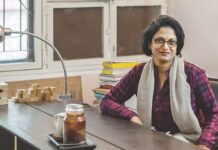
The pandemic and its economic impact will be felt very strongly by the poor. Most of our poor, whether they are day labourers working in the informal sector, semi-skilled employed by the construction industry, small-scale vendors in the kutcha market, or rickshaw pullers, there is no question that they will take a major hit from the shutdown and the joblessness. With very little savings and a weak safety net to help during an emergency, the economic impact of the lack of work and income triggered by the coronavirus will be very similar to the prolonged absence, or death of the only bread earner in a family. Within a few days, each of these families will worry about their next meal and scramble around for household items they can sell or pawn for some extra cash.
The major categories of wage earners in Bangladesh are factory workers, mainly in the RMG; drivers, conductors, mechanics, helpers and office clerks in the transportation industry; skilled and unskilled workers in the micro and small industries, and owner-operators of small businesses in the informal sectors.
Unfortunately, COVID-19 will leave these workers in jeopardy. First of all, “social distancing”, whether these workers live in the cities or in rural areas, is going to be difficult to practice. Our country is very densely populated, and the average size of living space per individual is only a few square metres. Garments workers typically live in group quarters or rooming houses where three or four people share a room or even a bed. The situation does not get any better when the workers return to their “village home”. Now, they will become guests of family members who probably themselves are seeing an influx of “out-of-town” visitors.
Secondly, when RMG workers become sick they can get some basic medical care at the factory, or at a community clinic. Once they go back to their village, medical care might be difficult to find. Family members also might be prioritising their needs and flu-like symptoms is often ignored. This will lead to a rapid spread of the virus, as well as absence of treatment. Sick people, when they first show symptoms associated with coronavirus, including temperature, coughs and tiredness are less likely to get the test if they are poor and even less if they move to the villages.
Thirdly, many of the slum dwellers in the major cities are particularly vulnerable to any virus transmission. Living conditions in Dhaka’s slums, large or small are dire and lack proper sanitation facilities. Without work, the crowding situation will get worse since most of the workers will stay home and move around in their limited perimeter. While the government has taken some measures, such as Open Market Sales (OMS) scheme under which rice will be sold for Tk 10 a kg, this does not benefit those who have lost their job.
Fourthly, poor people with underlying medical conditions are vulnerable during any epidemic season, such as dengue or cholera, and this risk goes up significantly when a pandemic starts making its inroads. Studies show that people at the lower ends of society are about 20-30 percent more likely to have a chronic health condition. According the Chinese Centers for Disease Control and Prevention, coexisting conditions can make the coronavirus up to 10 times as deadly.
The New York Times recently reported on research that found that in an epidemic, poverty and inequality can exacerbate rates of transmission and mortality for everyone.
“They are also likelier to die from it. And, even for those who remain healthy, they are likelier to suffer loss of income or health care as a result of quarantines and other measures, potentially on a sweeping scale,” the NYT in-depth report concludes.
An example from a supposedly rich country will reinforce the above point. A report on COVID-19 which is currently wreaking havoc in New York City found that distressed neighbourhoods like Elmhurst, Jackson Heights and Corona—densely packed areas of Queens, with lower-income families and large percentages of non-English speaking residents—were among the hardest hit by the disease.
Fifthly, lack of income affects the poor like a major epidemic. Income for the poor may come in various forms. In Bangladesh, any direct cash transfer for the poorest in times of crisis is non-existent. Some of the charitable organisations, religious bodies, philanthropists, and foundations are reported to have come forward with donations in kind. Rice, daal, potatoes, soap, and some other daily essentials. However, this will last only for a few days for most.
One of the most vulnerable section of our population, women and children will be hard hit by coronavirus-induced lockdown and social distancing. The lessons from the recent history of pandemics are clear: they affect women as much as men even if the latter are the principal bread-earners. Some of the most studied cases are the Ebola crisis in three African countries in 2014; Zika in 2015–6; and recent outbreaks of Sars, swine flu, and bird flu. “Everybody’s income was affected by the Ebola outbreak in West Africa,” Julia Smith, a health-policy researcher at Simon Fraser University, told The New York Times this month, but “men’s income returned to what they had made pre-outbreak faster than women’s income.” The distorting effects of an epidemic can last for years, said Prof Clare Wenham of the London School of Economics. “We also saw declining rates of childhood vaccination [during Ebola].” As a consequence, when “these children contracted preventable diseases, their mothers had to take time off work.”
International organisations, including the United Nations and the World Bank have already sounded the alarms. The financial impact of coronavirus will stop almost 24 million people from escaping poverty in East Asia and the Pacific, cautioned the World Bank. It warned of “substantially higher risk” among households that depend on industries particularly vulnerable to the impact of the virus, and this will include our export industries and remittances from abroad. The bank urged the region to invest in expanding healthcare and medical equipment factories, and to offer subsidies for sick pay that would help with containment and aid households. “Proven social protection measures like supporting job and income security, preventing poverty and unemployment, and strengthening economic and social stability and peace is critical,” added Tuomo Poutiainen, ILO country director for Bangladesh.
Dr Abdullah Shibli is an economist and works in information technology. He is Senior Research Fellow, International Sustainable Development Institute (ISDI), a think-tank in Boston, USA.









